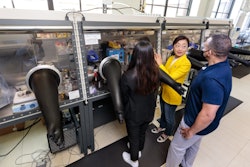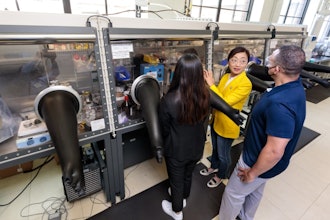The lithium-ion battery manufacturing equipment market is expected to witness significant growth with advancements in battery manufacturing technology in the near future. The introduction of specialized battery technologies is expected to improve battery standards and overcome the current limitations faced by standard lithium-ion batteries. Lithium-ion batteries have varying degrees of applications due to the high energy density and output they offer. The batteries are utilized in different sectors ranging from consumer electronics, automotive, aerospace, defense, energy storage, and other functions.
Lithium-ion battery manufacturing technologies have witnessed considerable evolution over the past decade. The implementation of standardized semi-automatic machines represents the prospect for mass production of lithium-ion batteries in a large scale. The production of semi-automatic machines is heavily prevalent in countries such as China, Japan, and South Korea. The industry has evolved to the point where manufacturers are pushing for a greater degree of automation to improve efficiency and the standard of the batteries. The development of automated technologies has already gathered momentum with top companies offering varying degree of process solutions.
The prospect for increased automation is understandable given the hazardous nature of battery production. The handling of materials such as electrolytes and other airborne components poses a health risk to the employees. Automated machines are gaining popularity in the market; however, they have certain limitations in the current scenario. Automated machines are expensive to develop which means they carry a large sale price. The machines are also not available for true end-to-end solutions that severely limit their functionality.
There are several companies that provide varying degrees of automation solutions for the manufacturers’ benefit. Machine handling allows for a more efficient and streamlined processes. This in turn aids companies to process faster and improved quality of the finished battery.
Find more information here.






















